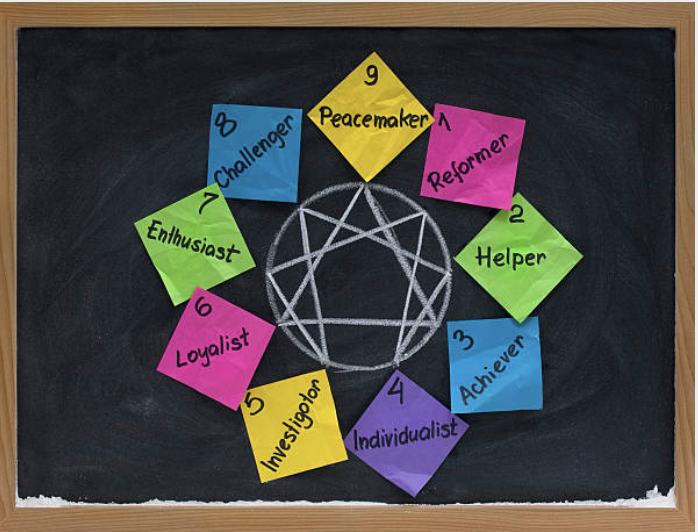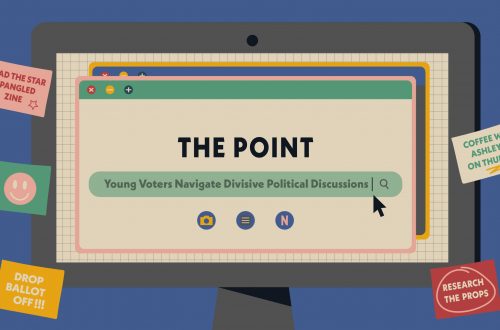Writer: Kayla Cha I Photo Courtesy of Unsplash
Personality tests have taken modern culture by storm.
In today’s society, we love to use personality typing to define ourselves. We use these tests to plan our future careers, anticipate our behaviors in relationships, and discover our strengths and weaknesses. We like to be given a code of conduct to live by, a set of rules on how to act and behave.
Personality tests include the Myers-Briggs Type Indicator (MBTI), the Love Languages test, the Clifton Strengths Analysis, the Apology test, and many, many more.
There is one test, however, that has sparked controversy in Christian circles: the Enneagram.
What is the Enneagram Test?
The Enneagram test is a set of nine personality types, each with distinct personality traits. The Enneagram Institute explains that it is common to resonate with each type, but one of them should “stand out as being closest to yourself.”
For example, your result could be a Six: committed, suspicious, and engaging; or a Four: sensitive, expressive, and withdrawn.
Although the full history of the Enneagram has yet to be discovered, most sources attribute the roots of this test to occultists George Gurdjieff, Oscar Ichazo, and Claudio Naranjo, who formed the typing system around various forms of cosmological, psychological, spiritual, metaphysical, and philosophical ideas
Why are some Christians wary of this test?
Because the founders of the Enneagram have roots in the occult, many Christians are cautious of using it.
The original founder, Gurdjieff, rather than using the test to develop personality types, used it to perform “Gurdjieff movements,” his own form of sacred dances. Ichazo went into “a seven-day divine coma” in which an “angel came to him and exposed [him] to 108 different, what he then called Enneagons,” or “now what we call Enneagrams.” Similarly, in an interview, Naranjo explained that he gained his wisdom about the Enneagram through a form of “automatic writing.”
Jackie Hill Perry, the author of Gay Girl, Good God, researched the Enneagram’s roots and highly advises her followers to avoid the personality test. She describes automatic writing as “channeling spirits,” allowing a demon to guide your hand or mind “to help you write down certain ideas.”
“We’re literally applying to our identity the wisdom of demons,” Perry states.
One of her greatest concerns regarding the Enneagram is that we humans are unknowingly attempting to gain divine knowledge — just as the first humans of Genesis 3 did.
“That was the temptation to Eve,” Perry explains, “You will have access to knowledge that has been reserved for God.”
Many Christians who avoid the Enneagram believe that as personality typing becomes a more prominent part of modern culture, it is easy for this test to slip under our spiritual radars.
“It’s also subtle. It seems good,” Perry says “It seems like wisdom, right?”
When this test is used in the church, Perry explains, we end up emphasizing our own personality types, our inner selves, and we don’t make room for Christ in these conversations. She states that we are choosing to understand our personalities through a framework developed on “demonic” foundations, rather than through the Spirit of God.
“Why wouldn’t Satan want to influence the way we understand ourselves?” she asks.
Some Christians believe that we should look no further than the Bible to define our characters and that it can be dangerous to follow secular, potentially demonic doctrines.
Why do Christians use this test?
It is common among Christian circles — especially those at Biola—to take the Enneagram test.
Some take the test as personality exercises in church or as introspective studies in their Bible classes. Many Christians find value in this personality test because it provides insight into one’s motivations, strengths, and weaknesses. They believe in its ability to help individuals develop greater self-awareness and empathy for others. Some church organizations even describe the Enneagram as a list of character traits that mirrored Jesus’, and Christians should therefore strive to be the “better” part of their Enneagram type.
A Type Two personality could ask, “Why do I care so much about other peoples’ opinions of me?” and the Enneagram test could answer by explaining that Type Two personalities struggle with pride and can sometimes be overly empathetic.
A Type Nine personality could ask, “Why am I conflict-avoidant?” and the Enneagram test could answer by explaining that Type Nine personalities fear loss and separation, and strive for inner stability.
The Christian argument in this debate is that we must first discover our personal issues, then surrender them to the Lord. In that safe atmosphere with God, we can reconcile these flaws. This test is simply a tool to help us better ourselves as people. The Enneagram can help us discover issues like conflict-avoidance, insecurity, and control, but it is Christ who helps us take action.
Pastor Matt Brown from Sandals Church states, “A lot of people don’t know themselves. The Enneagram, I think, helps you in that way.”
Instead of viewing the Enneagram as an over-spiritualized, ungodly way of life, Brown views it as a helpful, beautiful tool in order to live more like Jesus. He does not believe that it is on the same level of reverence as the Bible; he simply wants “tools that can help us to love each other and be more faithful Christians.”
Though he believes that this personality test can be helpful to Christians, he still leaves the decision up to the individual.
“You should pray about it,” Brown says. “We can all pray about things and come to different conclusions… if you’re convicted that the Enneagram isn’t for you, that might be the Holy Spirit.”
All this to say, the Christian take on the Enneagram test is a wide spectrum of beliefs.





